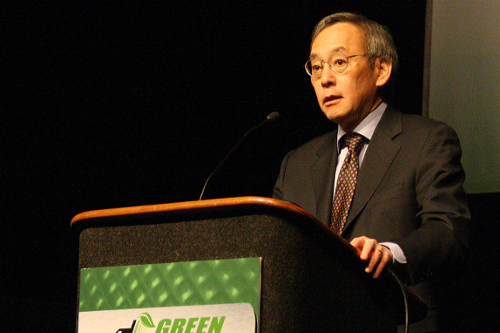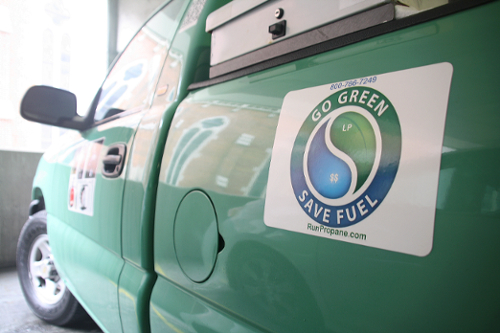

Natural gas is "no longer a debate" for fueling commercial vehicle fleets, said U.S. Dept. of Energy Secretary Steven Chu at this year's Green Truck Summit, which opened March 5 in Indianapolis.
Chu likened America's fuel crisis to a beef-eater who can no longer afford to buy beef. With crude oil prices at well over $100 per barrel, producers are investing in riskier sources, Chu said. Arctic or deepwater oil wells cost as much as $5 billion each to start up, so producers want to get the highest price possible for the investment.
"That's why it's so important to diversify, to be able to use pork and chicken and pasta," Chu said.
Chu, who has served as a lightning rod of criticism for DOE's investments in cleantech companies like Solyndra, as well as his comments on gasoline prices, told work truck attendees that a menu of natural gas, electric and biofueled vehicles will reduce the strain of rising oil costs and imported oil while cleaning up the air.
"We want to diversify our source of transportation energy," he said. "Oil is the overwhelming, predominant supplier."
Most recently, retail gasoline prices in the U.S. have inched up to $3.72 per gallon, while diesel is tracking at $4.05 per gallon, according to the Energy Information Administration. Four large fleet owners—Best Buy, Johnson Controls Inc., Pacific Gas and Electric Co. and Veolia Environmental Services have joined DOE's National Clean Fleets Partnership, which includes Coca-Cola, FedEx, UPS and Verizon, Chu noted.
"The question is, going to the future, should we make plans—and should you make plans based on your next purchase of trucks—expecting $30 a barrel of oil? If you do, it's a plan hoping for the best," Chu said.
Commercial vehicles using natural gas outnumber all other alternatives such as hybrids and electrics, reports the National Truck Equipment Association, which hosted the Green Truck Summit and related Work Truck Show, held here March 5-8.
"Both natural gas and propane are expanding very nicely, and the projection is that for next year we are going to see an even greater increase," said Doyle Sumrall, NTEA's senior director of business development. "As fuel prices are going up, the technology is becoming more available, and the technology is getting better."
About 73,000 CNG and 68,000 propane commercial vehicles will be in operation this year, compared with just over 50,000 and 48,000, respectively, in 2009, NTEA forecasts. By comparison, electric hybrids, the next-largest category of alternative-fueled commercial vehicles that NTEA tracks, are expected to rise to just under 10,000 this year.


Post a comment to this article
Report Abusive Comment